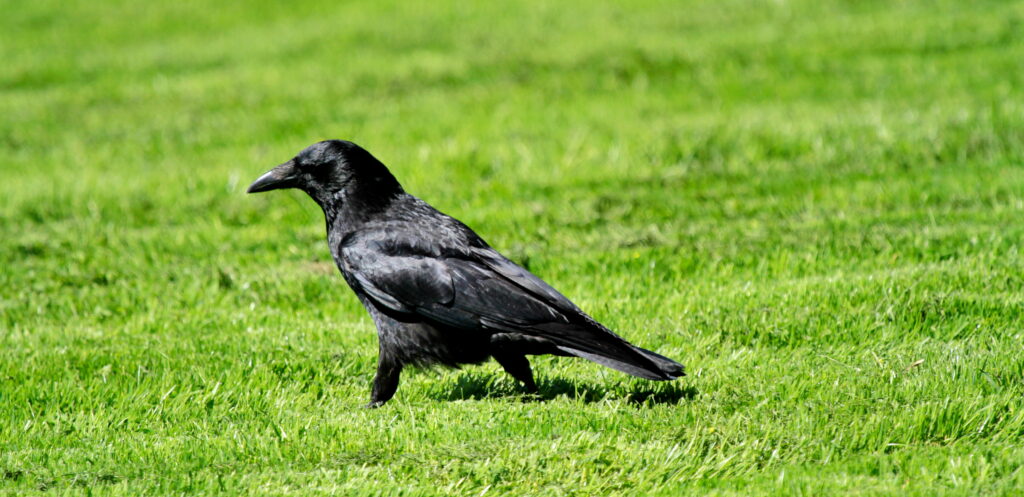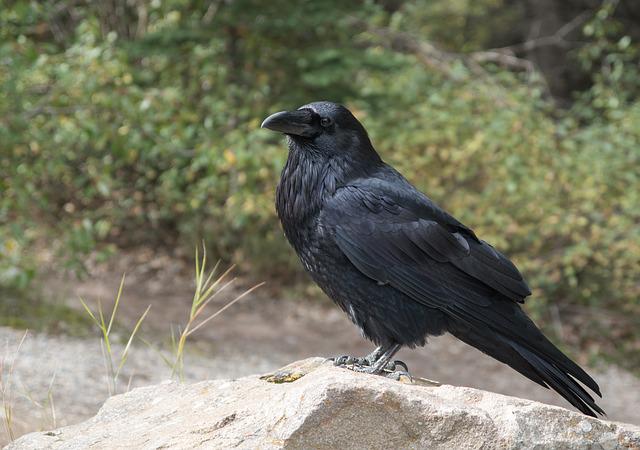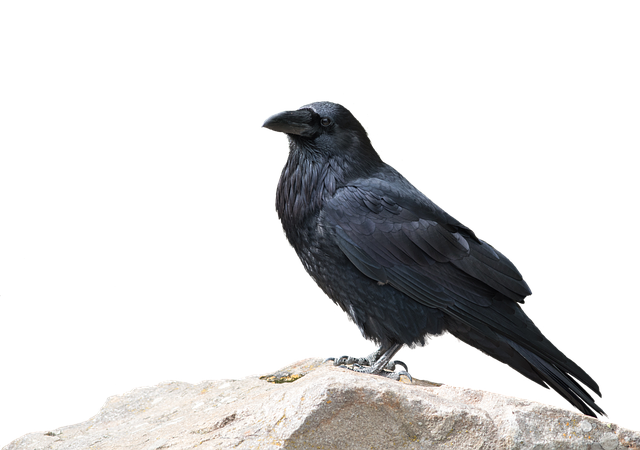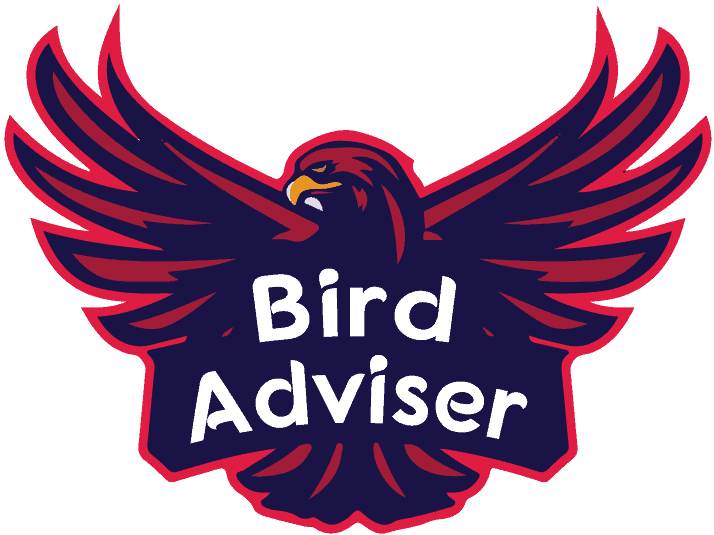When people think about talking birds, parrots are generally the first to mind. But did you know that other species can communicate as well?
We’ll look into crows but whether or not crows can communicate in this post, so keep reading if it’s something that interests you. You might be astonished to hear that crows can communicate!
Birds use their syrinx for replicating noises and phrases birds hear and repeat, similar to parrots. They might not have grasped what they’re saying and will simply repeat what they’ve heard.
Do All the Crows Talk?
To be honest, even though they have the knowledge and capacity to converse and replicate words and noises, all crows never talk like parrots. This is because some crows are hesitant to talk. They are unwilling to exhibit themselves in just this manner.
Even if given the same instruction, each crow will not be able to imitate with the same fluency. Crows who live far away from humans may never speak a single word or sound in their lives. On the other hand, young crows can imitate significantly many words than their adults.
How Do Crows Talk?

Crows do not communicate in the same manner that people do. With the assistance of their syrinx, they imitate words and noises. They try to recollect what they’ve heard the same way they heard it.
There are various ways for a crow to imitate noises.
1. Crows Use Their Organ Syrinx
Crows use their syrinx, a specialized vocal organ often known as a voice box, to mimic sounds. Their tongues aren’t involved in the formation of sounds in this scenario. Crows, in essence, imitate noises without understanding them.
2. Crow’s Sharp Memory
Crows can converse and imitate words faster than some other bird species due to their excellent recall. Even though their heads are smaller than the remaining of their bodies, they are more intelligent than other birds.
They’re also capable of recognizing a variety of patterns and tools.
3. Brain Functioning
A crow’s brain has about 1.5 billion neurons on average. Song nuclei are created by clusters of neurons in the crow’s brain. As a result, crows can imitate words and even complete phrases.
Is it Possible for Crows to Say Hello?
Yes, crows can communicate with one another. When crows are near humans at a wildlife reserve or a zoo, they may hear them say hello. They identify the word right away and repeat it multiple times until they are comfortable with it.
Why Have Crows Never Often Seen Talking?
The main reason is that, unlike parrots, crows rarely get close to humans. They’re also not very popular as pets. As a result, selecting words to emulate may be difficult for them.
Parrots, on the other hand, are docile birds who can easily imitate human speech. When maintained in captivity, crows, on the other hand, can grasp and mimic human speech fairly well.
In some situations, they can replicate words almost as well as parrots. If you come along a crow at a wildlife park, teach it some fundamental greetings such as hi, good morning, and so on. You won’t believe how quickly they pick things up.
Can We Train a Crow to Talk?

Yes, we can train a crow to communicate. It’s simpler to teach a crow to speak if you nurture it in your house from when it’s a baby. If a crow comes to your yard every day, you can teach it to speak.
Here are a few simple things you can do to help a crow communicate.
1. Using Simple Words to Teach Crow
Simple words like Hey, okay, peekaboo, hi, night-night, and goodbye, as well as other simple words, might be a good place to start teaching the crow. As we repeat the statement, the crow will copy you.
With practice, the crow can imitate a wide range of phrases and noises, which will astound you.
2. Repeating the Words with Crows with Enthusiasm
Make a point of saying the words with zeal. The crow catches up on the exciting impulses and learns very quickly when you repeat the phrases with all your zeal. The more zeal you exude, the more eager the crow becomes to speak the language.
3. Giving Crows Reward
One of its most successful ways to teach a crow to imitate words is to give it goodies. You may encourage the crow to memorize the words by rewarding it whenever it accurately imitates a word. Appreciate the crow whenever it makes a valiant effort.
4. Training a Young Crow
Young crows are better capable of copying language than adult crows, according to studies. It is easier to train the younger birds than the adult crows. If you want to train a crow to speak, you should start with a juvenile crow.
5. Building Trust with the Crow
Building a crow’s trust is one of the most important components of training it to communicate. Spend a lot of time with crow and allow it to build a close bond with you. If the crow does not trust you, it will be hard to teach it anything.
6. Deal Crows Patiently
Whenever a crow is acquiring their initial word, it might take weeks for them to absorb it, so be patient and provide rewards to encourage them.
The more and more words a crow acquires, the better and faster they will be at learning new vocabulary, even if it is a slow and difficult process. Because of their great memory, crows often acquire language quicker than other bird species. Crows can recall and repeat full phrases as well.
7. Establishing a Routine
If you already have your practice sessions simultaneously time daily, the bird will develop a habit and may even become thrilled at the idea of obtaining rewards if it says a few phrases.
You’ll also notice once your crow masters a few simple words, learning more words, phrases, and even whole sentences becomes that much simpler for the bird.
Can Crows Talk like Parrots?

Yes, crows can communicate in the same way as parrots do, yet unlike parrots, crows never communicate with their tongue. They utilize their syrinx instead.
The syrinx is the vocal organ of birds, and it is positioned directly beneath the trachea. It’s the bird’s vocal box, in other words.
On the other hand, crows are superb mimickers and can be trained in a wide range of phrases and even full sentences given time, patience, and practice. But keep in mind that, like cats, crows will only answer according to their terms.
Two Types of Crow Calls
Many crow calls are contextual, which implies you may find out why they’re conversing by considering just what is happening around the crow’s environment.
However, most of the screams you hear are non-contextual, meaning they appear to be random and unrelated to anything in the environment.
Final Thoughts
Even if you didn’t recognize it, crows could communicate just as effectively as parrots. They have the same capacity to reproduce sounds that they hear repeatedly, and they may be taught to repeat the same thing, phrases, and even complete sentences.
Few people realize that crows may be taught to talk since they don’t interact with people daily. Because they are essentially wild birds, those who have raised crows from eggs in parks and animal rehabilitation organizations have had remarkable success teaching them to communicate.
The crow may need some time to become habituated to human contact before training to believe and so be driven to learn to speak. Almost all other corvids, such as vultures and magpies, can be taught to imitate human speech, with intriguing results. Hem as pets necessitates a permit.
FAQ
Is it accurate to say that crows mimic human speech?
Yes, crows, particularly those kept in captivity, can imitate human speech.
Do crows and parrots have the same intelligence?
Crows are among the world’s most clever birds.
Do crows copy other birds’ behavior?
Crows can, and frequently do, imitate the sounds of other birds, other recognizable sounds, and even humans.
Is it true that crows are smarter than ravens?
Such two birds are extremely intelligent. Ravens, on either hand, seem to be far more intelligent than crows.
Is it necessary to fork their tongues?
You don’t have to fork a crow’s tongue to get it to speak.
Last Updated on March 22, 2023 by Lily Aldrin

